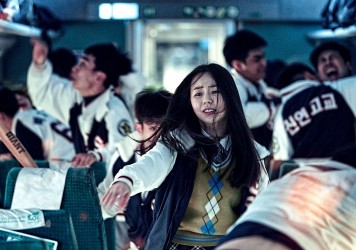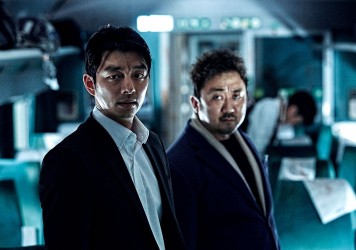A young man sets out to save his true love and ends up caught in a bloody battle aboard a train in Nikhil Nagesh Bhat's riotous actioner.
Some way into Nikhil Nagesh Bhat’s Kill, Fani (Rughav Juyal) defends his murderous, mad-dog conduct to his father Beni (Ashish Vidyarthi), insisting that they are bandits, not Batman or Spider-Man, and not bound by codes of honour or responsibility.
Beni may have ordered Fani and his gang of thugs to rob all the passengers on the Rajdhani Express train, but the gratuitous killing starts on Fani’s own initiative. By chance, army commandoes Amrit (Lakshya) and Viresh (Abhishek Chauhan) are on the train too, trying to stop Amrit’s long-term girlfriend Tulika (Tanya Maniktala) being forced by her powerful family – also aboard – to marry another man. The two soldiers immediately intervene in the armed robbery, and, like Batman, hurt and maim bandits but draw the line at wilful killing – until, about a third of the way through Kill, Fani himself crosses that line in a deeply personal way, and the film’s title appears for the first time on screen, accurately signalling the vicious bloodbath to come.
Now Amrit too crosses over, becoming a raging, vindictive killer, even – something which Fani expressly states – a “monster” not unlike Fani himself, as Bhat treats audiences to a bludgeoning succession of nasty kills, coach by coach. Think of it as Gareth Evans’ The Raid on a train, with not just knives and guns as weapons, but whatever comes to hand, including chains, cleavers, hammers, glass, lighter fluid, even toilets. Soon the interiors of these railcars will be less The Darjeeling Limited than The Midnight Meat Train, as Amrit’s rampage of revenge turns carriages into charnel houses.
Like Alfred Hitchcock’s The Lady Vanishes, Eugenio Martin’s Horror Express, Jun’ya Satô Bullet Train, Andrey Konchalovskiy’s Runaway Train, Tony Scott’s Unstoppable, Bong Joon-ho’s Snowpiercer, Yeon Sang-ho’s Train to Busan, and David Leitch’s Bullet Train, Kill uses a high-speed locomotive as the vehicle for motion picture thrills. In this case, a ‘protector’ of the nation will have his heroic status not just tested but called into open question, as his own actions, alongside those of the bandits, escalate the killings and rapidly raise the body count, so that both sides of this conflict are caught in the same barrelling deathtrap.
All these scenes of ramifying massacre are incongruously counterpointed by moments of heightened melodrama and sentimental flashbacks to happier times, only adding to the film’s messy sense of moral disorientation, where good and bad alike mourn their dead and are motivated by the spiralling, self-begetting demands of vengeance.
Trains are rather like cinemas. For their patrons, in designated seats within a confined space, are taken on a journey with fixed times of departure and arrival, and rewarded with a window on a world in constant motion on the other side of the screen. In Kill, the train takes the viewer for a bumpy ride along parallel tracks of heroism and villainy. It is ecstatically violent, both celebrating and interrogating its own killing spree, as it races towards its final destination.
Little White Lies is committed to championing great movies and the talented people who make them.
Published 4 Jul 2024
John Wick on the Rajdhani Express?
John Wick on the Rajdhani Express!
Exultantly stabby, self-interrogating vengeance.

The end of the world has a familiar theme in these train-based South Korean allegories.

An unlucky assassin finds himself on the commute from hell in director David Leitch’s irritating action-thriller.

By Mike Tsenti
The Korean smash hit in which a battle against zombie hoards takes place on a commuter train.